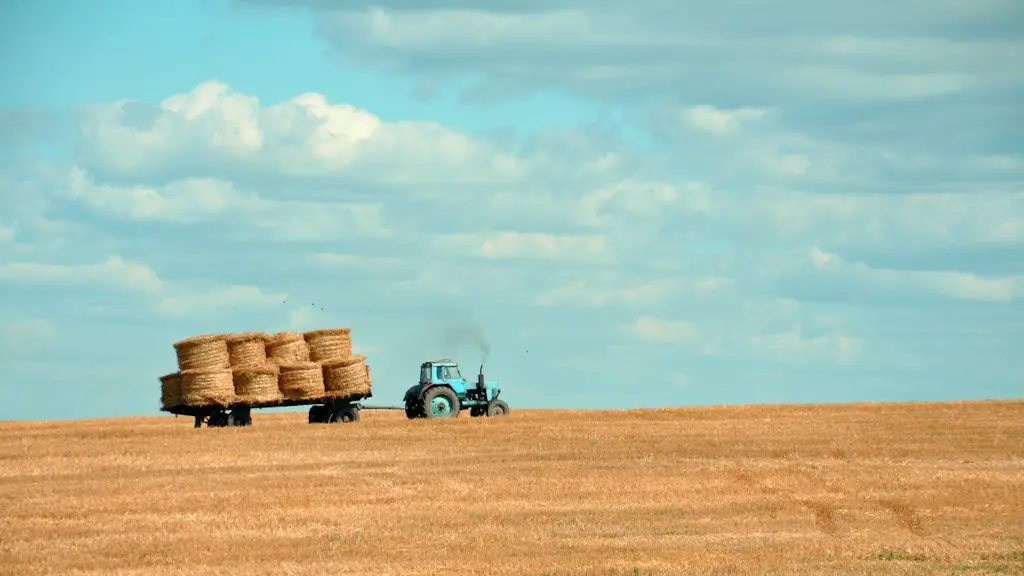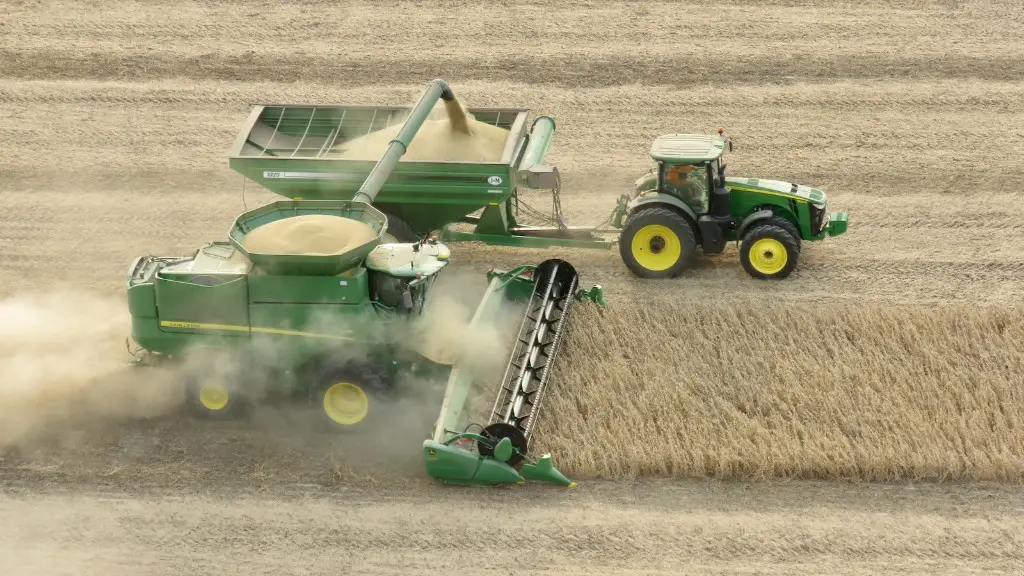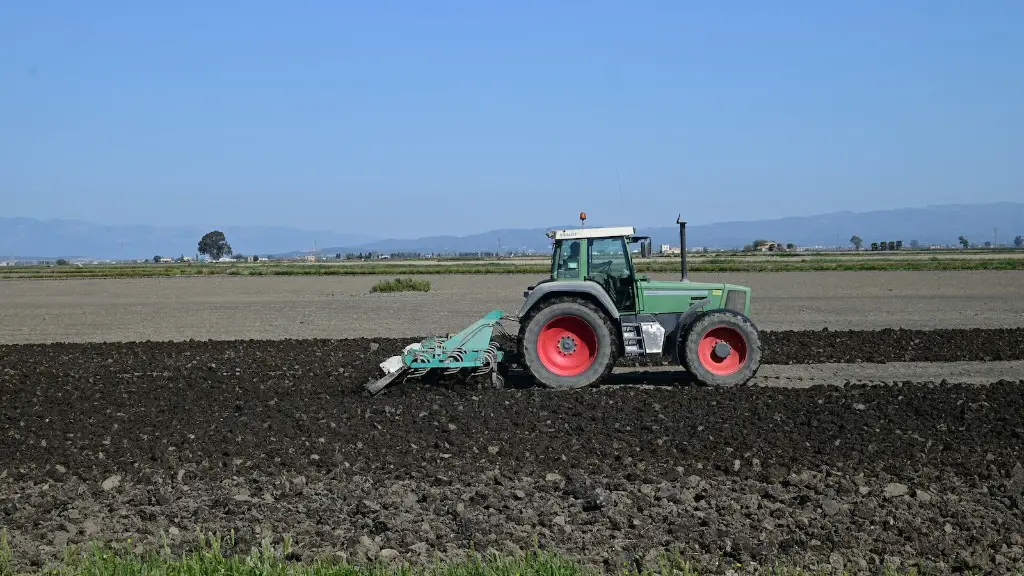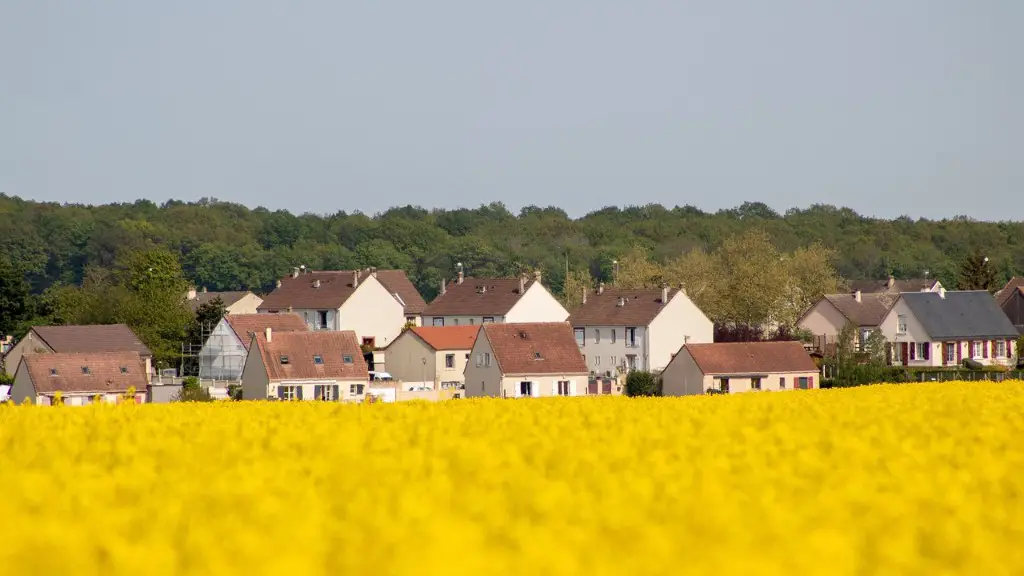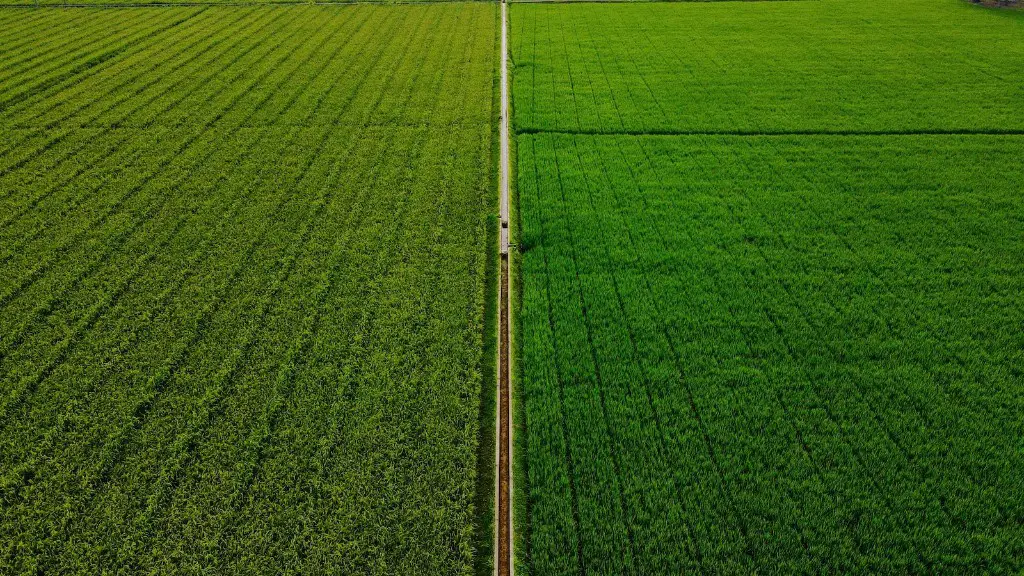Agriculture is an integral part of human settlement and has a significant impact on it. Agriculture provides the basic necessities of food and clothing, while contributing to sustainable economic growth and increasing economic productivity. Agriculture also supports social development and has a major influence on population growth, land use, and the development of infrastructure within a settlement. In this way, the relationship between agriculture and human settlement is fundamental to both sustenance and growth.
Agriculture is fundamental for providing sustenance for a settlement as it allows for access to a reliable and diverse source of food. Through the practice of rotating and replenishing crops, people in a settlement are able to secure a reliable and steady supply of food that can provide for their basic needs. By diversifying the types of crops available, people in settlements can not only have access to a variety of food types, but can also improve the resilience of their harvests in the face of changing climates.
Agriculture also has a significant impact on the growth and development of a settlement as it supports economic development by providing jobs and income. With the increase in population, there is a greater demand for food in a settlement and thus more opportunities for people to engage in commercial agriculture activities. This increased availability of employment opportunities contributes to the economic development of a settlement and supports the infrastructural growth within it.
Agriculture also affects land use within a settlement and can help ensure that natural resources are responsibly managed. In many settlements, land is used to produce food to feed local populations, and this can lead to more efficient and sustainable resource management. Through the sustainable management of land, people in a settlement can rest assured that their resources are being allocated responsibly, allowing for more efficient land use and thus improved long-term sustainability.
At the same time, agriculture is also responsible for population growth as people in a settlement are drawn to new sources of employment and food. This influx of people increases the demand for resources, but also contributes to the cultural, social and economic diversity of a settlement. New comers often bring their own traditions and customs, which help to enrich the culture of the settlement.
Finally, the relationship between agriculture and human settlement can also be seen in the development of infrastructure within a settlement. As more people come to an area, the need for infrastructure such as roads, schools, hospitals and other services increases. These infrastructural developments enable the efficient management of resources, and also enable people to live within and move between settlements with greater ease. This development of infrastructure also helps to ensure that a settlement remains sustainable and prosperous in the long-term.
Agricultural Production and the Economy
Agriculture has a major influence on the economic development of a settlement. Agricultural production is a cornerstone of sustainable economic development, providing jobs and income to people living in a settlement. With increased demand for food, more opportunities for employment become available and this can support the development of new businesses and industries within a settlement. This, in turn, stimulates foreign investment and also increases access to resources, leading to a more vibrant economy for the local population.
Agriculture is also an important source of income for farmers who use it to support and sustain their livelihoods. This not only helps farmers to remain self-sufficient, but also ensures that the population of a settlement has access to food and other resources. This sustains a healthy and thriving population within the settlement, key to its economic and social growth.
At the same time, agricultural production is highly instrumental in determining the success of a settlement’s economy as it provides the foundation for various other industries. For instance, the production of agricultural by-products such as cotton, timber, and sugar can be used to support the textile, construction, and culinary industries. By diversifying the economic opportunities available within a settlement, agriculture can help ensure that the local economy remains strong and sustainable.
Finally, agriculture can also be used to stimulate the local economy by encouraging local tourism. As people become more aware of the quality and diversity of the local produce, they can be drawn to the settlement to visit local farmers’ markets and sample the local delicacies. This influx of visitors can increase the revenue of the local economy, helping to further stimulate economic growth and foster a more vibrant local environment.
Agricultural Export and Trade
Agriculture is also important for facilitating the export and trade of goods in a settlement. By producing diverse agricultural goods, a settlement can increase its chances of succeeding in international markets for trade and export. This, in turn, provides an influx of capital which can be reinvested into the local economy and in various other industries.
The relocation of agricultural goods on an international level also contributes to the spread of cultural diversity within a settlement. As different cultures become exposed to each other’s goods, people in a settlement can gain a greater understanding of each other’s traditions and customs. This increased understanding can help to foster a sense of community and support cultural enrichment in a settlement.
At the same time, the export and trade of agricultural goods can increase the profits of the local economy and contribute to the development of infrastructure in a settlement. Resources gained from the export of goods can be reinvested in the local economy, providing an influx of capital which can be used to foster greater economic growth.
Finally, agricultural export and trade can also be used to encourage economic specialization within a settlement. As more goods are produced and traded on an international level, new business opportunities become available and this can help to stimulate economic growth and encourage specialization in different industries. This can help to ensure that a settlement is less dependent on one particular industry, improving its overall economic resilience.
Crop Rotation and Resilience
Crop rotation is a key agricultural practice for achieving sustainable growth in a settlement. Crop rotation involves the replanting of different crops on the same land, helping to maintain the fertility of soil and reduce the need for artificial fertilizer. This practice not only helps maintain the fertility of the soil but also increases the diversity of the crops, improving the resilience and security of the local population.
Crop rotation is also integral for protecting a settlement from the impact of climate change. By planting different crops on the same land and diversifying the types of produce, the settlement will be less vulnerable to extreme weather conditions and can better handle the unpredictable nature of climate change. This practice can also improve the hardiness of different crops and make them more resistant to the impacts of extreme weather.
Crop rotation is also important for protecting a settlement’s natural resources and ensuring that they are used responsibly. By rotating crops, farmers can ensure that natural resources such as water and soil conservation, as well as biodiversity, are preserved and maintained. This helps to ensure that the resources available remain sustainable and are managed responsibly.
Finally, crop rotation is an important part of maintaining a robust and healthy agricultural industry in a settlement. By rotating crops and diversifying the types of produce, farmers can reduce the risk of pests and diseases which can have a devastating impact on agricultural production. This practice helps to ensure that agricultural production remains steady and reliable, and that the local population can have access to a secure and diverse source of food.
Influence of Technology on Agriculture
The relationship between agriculture and human settlement is being further strengthened by the introduction of new technologies which provide new opportunities for agricultural production. The use of automated machines, advanced irrigation systems, and remote sensing systems can help increase productivity, expand markets, and maximize yields.
The use of technology has allowed people in a settlement to become more efficient in their agricultural practices, enabling them to maximize yields while still maintaining sustainability. Automated machines can help reduce the labor required to maintain and harvest crops, while advanced irrigation systems can provide better access to water and reduce wastage. Remote sensing systems can also help with the monitoring of crop health, allowing farmers to better analyze the performance of their crops.
At the same time, the introduction of new technologies can also help to increase the efficiency of resource management within a settlement. Through the introduction of sensors and other devices, people in a settlement can better monitor and manage their resources, allowing for more accurate and efficient resource allocation. This helps to ensure that resources are used responsibly and that the long-term sustainability of a settlement is maintained.
Finally, the progress of technology can be used to support the development of infrastructure within a settlement. With the introduction of technology, people in a settlement can have access to a greater range of services and amenities, allowing them to move around with greater ease and maintain access to basic necessities such as healthcare and education. This ultimately helps to ensure that the population of a settlement can remain healthy and sustainable.
The Benefits of Sustainable Agriculture
The success of a human settlement ultimately relies on the sustainability of its agricultural production. Sustainable agricultural production provides the opportunity for a settlement to meet the needs of its population while preserving the natural resources on which it depends.
Sustainable agricultural production helps to ensure that the natural resources of a settlement are managed responsibly and that they are preserved for future generations. Farmers can use methods such as crop rotation and the use of natural fertilizer to reduce the amount of artificial resources used in their practices and to improve the fertility of the soil. This helps to reduce the impact of agriculture on the environment and ensures that natural resources remain accessible for future use.
Sustainable agriculture also helps to increase the resilience of a settlement as it safeguards against the impacts of climate change and other unpredictable events. By ensuring that plants and crops are hardy and pest-resistant, a settlement can be more resilient in the face of adverse weather conditions and can maintain a steady supply of food even when faced with unexpected events.
Finally, sustainable agriculture also helps to alleviate poverty within a settlement by reducing the cost of agricultural production and providing greater access to resources. By using sustainable practices, farmers can increase their productivity and produce more food, allowing them to increase their profits and improve their livelihoods. This can help to create an economically strong and vibrant settlement and ultimately help to eradicate poverty within it.
